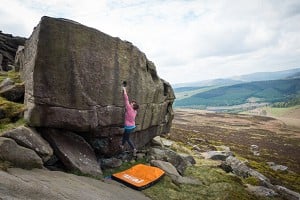
It's exactly one year to go until the first day of Sport Climbing action at the Tokyo 2020 Olympics (Men's Combined Qualification day, in case you were wondering). IFSC Commentator Charlie Boscoe takes us through the selection process as we near the 2019 Combined World Championships in Tokyo starting on 11th August - a competition which will select the first 7 athletes as eligible for the 2020 Games...
One year from today, Sport Climbing will make its Olympic debut in Tokyo. How many climbers thought they'd ever read that sentence? It's hard to imagine the early pioneers of the sport ever envisaging this day, but everything changes and while certain types of climbing remain fringe activities practised by a handful of disciples, modern gym climbing and the competitions related to it are here to stay and growing every year.
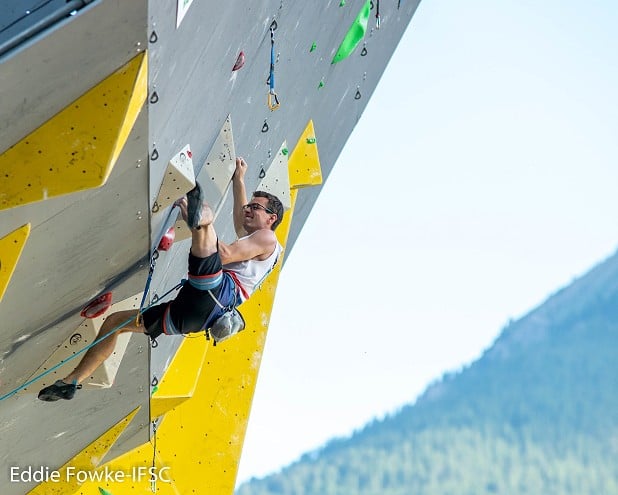
The climbing world is changing fast but none of us own this sport and none of us has the right to say what it "should" be; climbing is many things to many people and long may that be the case. It's a sport of pioneers and 20 men and 20 women will become the latest pioneers - climbing's first Olympians - via a selection system that has, after some changes, now been finalised. It initially appears that the system is quite complex but it's really not, and I'll do my best to explain it as simply as possible.
The first thing to explain is the scoring and ranking system for Olympic Combined format climbing competitions. In these events climbers compete in Speed, then Boulder then Lead. Their overall score is their rankings from the 3 disciplines multiplied by each other.
For example, if a climber was 4th in Speed, 2nd in Boulder and 6th in Lead, their score would be 48 (4 x 2 x 6). 20 climbers take part in Combined qualifiers, so the best score possible is 1 (1st in Speed x 1st in Boulder x 1st in Lead) and the worst possible score would be 8000 ( if a climber finishes 20th in all 3 disciplines). The best ranked 8 climbers progress to Combined finals, so the best possible score in a final is still 1, and the worst is 512 (if a climber finishes 8th in all 3 disciplines). More detailed information about exactly how each discipline is contested at a Combined event can be found in the IFSC rules.
Before delving into the detail of how climbers qualify for the Olympics, let's get the red tape out of the way. Climbers wishing to go to Tokyo must:
Comply with the provisions of the Olympic Charter which is currently in force (Download a copy here).
* Hold a valid International license issued by the IFSC for the Olympic Games year at the date of the final entries deadline (6 July 2020).
* Not have been banned from participating in any IFSC competition for whatever reason during the Olympic Games year.
Have participated at least in one of the events in the "Qualification Pathway."
And so, on to the "Qualification Pathway", which is the name given to the various events through which climbers can seal their spot in Tokyo.
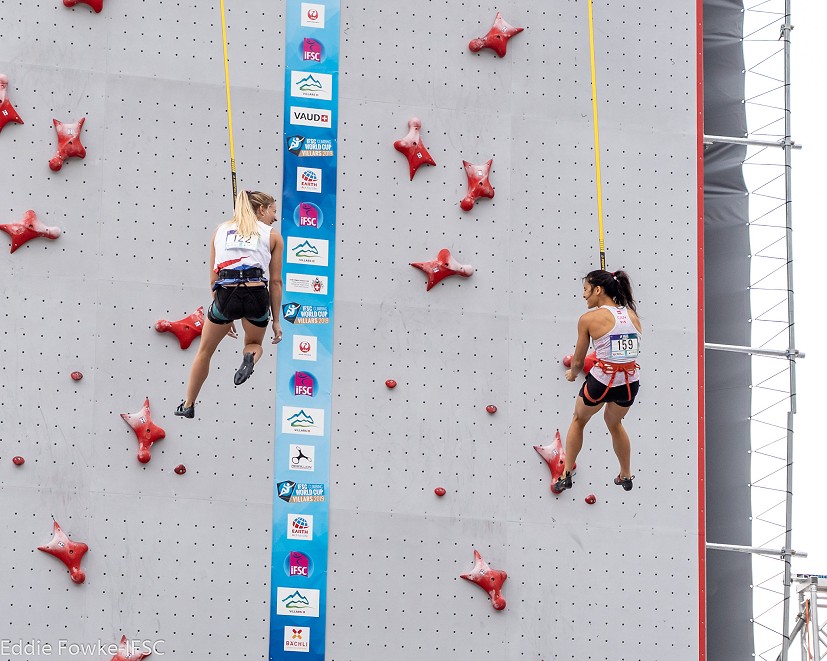
Since there have been relatively few opportunities so far to test athletes in the Olympic Combined format (Innsbruck World Championships 2018, Innsbruck World Youth Championships 2018, Youth Olympic Games 2018), it is difficult to predict who will perform best at competing in all three disciplines on one day with minimal rest in between rounds. To a certain extent, the overall Combined rankings from the current 2019 individual discipline IFSC World Cup circuits don't give an perfect estimation as to who will adapt to the intensity of the Olympic Combined format well enough to qualify, since they reflect general performance across separate individual discipline events and not a true 'Olympic' combination of Speed, Boulder Lead in a day. Who will be able to switch between the disciplines most efficiently, making sure that they conserve energy for their strongest discipline while keeping a cool head if a round doesn't go as planned? It's a whole different ball game, as they say.
Taking the overall rankings from the IFSC World Cup Circuit into consideration, however, Great Britain's Will Bosi and Shauna Coxsey look to have a strong chance of qualifying through one of the pathways with a current 2019 overall combined ranking of 6th and 11th respectively.
1) IFSC Combined World Championships in Hachioji, Japan. 18th - 21st August 2019. A minimum of 7 climbers per gender will qualify for the Olympics here
First up in the Qualification Pathway is the IFSC Combined World Championships in Hachioji, which will take place immediately after the 2019 IFSC World Championships at the same venue. The main World Championships will follow the usual IFSC schedule, with climbers competing for medals in each of the 3 individual disciplines - Lead, Speed and Boulder - against climbers of the same gender. All climbers who gain a ranking (ie. participate) in all 3 disciplines will then get a combined ranking, and the top 20 men and top 20 women in the combined rankings will then compete in the Combined World Championships.
The 20 climbers per gender will first do a Combined qualification day consisting of a Speed competition, then a Boulder round and finally a Lead route. The top ranked 8 men and 8 women from the Qualification day will then progress to a Combined final. Following the Combined final, the top ranked 7 climbers per gender are then qualified for the Olympics.
So far, so simple, right? Well not quite; each country can only take 2 climbers per gender to the Olympics so if, for example, France have 3 men who "qualify" for the Olympics via Hachioji (or in any other event in the Qualification Pathway) then only 2 of the 3 will qualify for the Olympics, and the next eligible non-French climber down the rankings will qualify for the Olympics in place of the 3rd French climber.
As you'll no doubt have figured out, this means that even if a climber doesn't finish in the top 7 in Combined World Championships, they can still qualify for the Olympics via the event. Indeed, at the end of the Qualification Pathway, climbers who were ranked several places lower than 7th in the Combined World Championships could still qualify, as various quotas, Host Country Places and Tripartite Commission Invitation Places are either filled or go unused. I'll explain more about these further down.
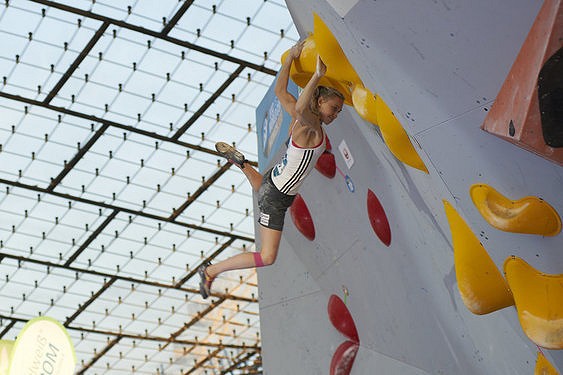
2) Olympic Qualifying Event 2019, 28 November - 1 December, Toulouse, France
6 climbers per gender will qualify for the Olympics here.
The next way into the Olympics is via the Olympic Qualifying Event in Toulouse right at the end of the IFSC season. The 20 highest ranked combined athletes per gender (according to Overall World Cup ranking (which is also explained in the IFSC rules, link here) at the end of the 2019 IFSC World Cup season) who have not yet qualified via the Combined World Championships in Hachioji will then be selected for the Olympic Qualifying Event.
Like in Hachioji, there will be a Qualifying day in which all 20 climbers per gender participate, and then a final with the top 8 per gender. Day 1 in Toulouse will be men's qualifying, Day 2 will be women's qualifying, Day 3 is men's final and Day 4 is women's final. That will be the schedule for the Olympics too.
The 6 highest ranked athletes per gender in Toulouse will qualify for the Olympics, respecting the maximum 2 climbers per gender per country which I explained above.
3) IFSC Combined Continental Championships, 2020
5 climbers per gender will qualify for the Olympics through these.
In the first half of 2020 there will be 5 Continental Championships, and the winners of each will qualify for the Olympics. These Championships will all be open to climbers who have already qualified for the Olympics, so if the winner of any of the events is already qualified, the highest ranked climber who isn't already Olympic qualified (and who comes from a country which hasn't already filled its 2 person per gender quota) will get the Continental slot.
One interesting thing to note here is that North and South American countries are competing in one combined Pan-American event, meaning that South America is not by any means guaranteed to have any representatives at the Olympics, despite having some strong all rounders. A South American might qualify through Hachioji, Toulouse or the Pan-American Championships, but it's possible that they won't and the system does not guarantee the continent a place. This stems from the IOC's not recognising North and South America as separate continents, hence 5 continents, and 5 Olympic rings.
Africa, on the other hand, does not have any climbers near the top 20 in the combined rankings as they stand right now, but is guaranteed to have a climber per gender at the Olympics.
The Continental Championships will take place in -
Africa, 1-3 May, Johannesburg (RSA)
Asia, 18-24 May, Morioka (JPN)
Europe, 16-18 April, Moscow (RUS)
Pan-American, 27 February - 1 March, Los Angeles (USA)
Oceania, 18 - 19 April, Sydney (AUS)
4) Host Country Places
1 climber per gender will qualify this way.
Japan, as host country of the 2020 Olympics, is guaranteed 1 climber per gender. In the highly likely event that 2 Japanese climbers per gender have qualified anyway, this unused Host Country Place would go to the next highest placed climber in the Combined World Championships in Hachioji 2019 who is not yet qualified (and doesn't come from a country with 2 climbers already qualified). If 2 Japanese climbers qualify through Hachioji, Toulouse or the Asian Championship, they won't get a 3rd climber under the Host Country system; there will be a maximum 2 Japanese climbers per gender regardless of how they are selected.
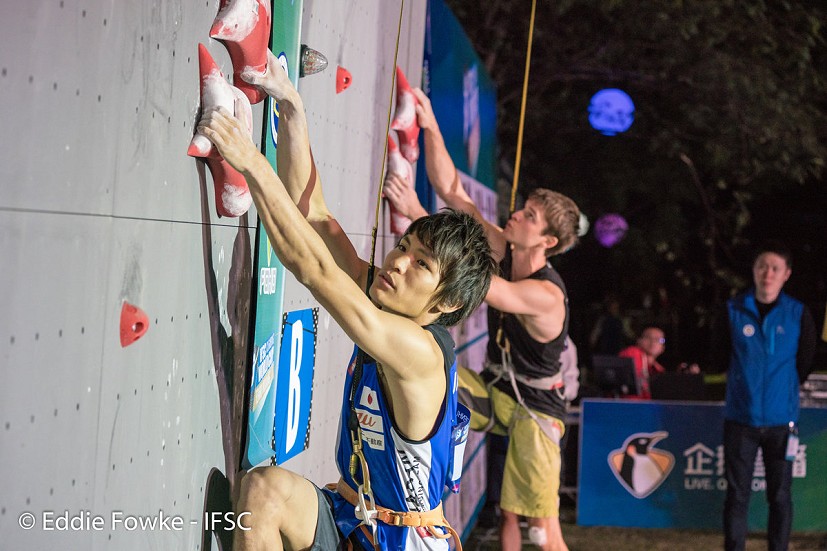
5) Tripartite Commission Invitation Places
1 climber per gender will qualify this way.
One Tripartite Commission Invitation Place (essentially a wildcard given out by the International Olympic Committee [IOC]) per gender is available, provided the selected climbers meet the required technical level, fit the basic criteria outlined at the start of this article and competed at the IFSC Combined World Championships in Hachioji. NB. The climber must have competed in the Combined World Championships, so climbers who compete in the main World Championships but don't do well enough to make it into the Combined World Championships will not be eligible for the Tripartite Commission Invitation. (Sadly this clause means that neither I nor stalwart IFSC Graeme Alderson are likely to be given this slot, despite our services to the sport!)
The International Olympic Committee (IOC) will invite all National Olympic Committees (NOCs) to submit their requests for a Tripartite Commission Invitation Place and the Tripartite Commission will confirm who the slots have been allocated to after all events in the Qualification Pathway have been completed. If a Tripartite Commission Invitation Place cannot be allocated for whatever reason, the slot would go to the next highest placed climber in the Combined World Championships Hachioji 2019 who is not yet qualified (and doesn't come from a country with 2 climbers already qualified).
The exact date on which the Tripartite Commission Invitation Places will be allocated is yet to be confirmed.
So there we go; if everything goes by the book, it's 7 per gender from Hachioji, 6 from Toulouse, 5 from the Continental Championships, 1 for the host country and 1 Tripartite Commission Invitation to make a total of 20.
One major point to note is that qualifying via any of the Qualification Pathway events does not guarantee a climber a spot in the Olympics. If a climber has met the IFSC/IOC criteria to qualify for the Olympics, their National Olympic Committee (NOC) is notified and then each NOC has 2 weeks to confirm whether they wish to take up the allocated slot.
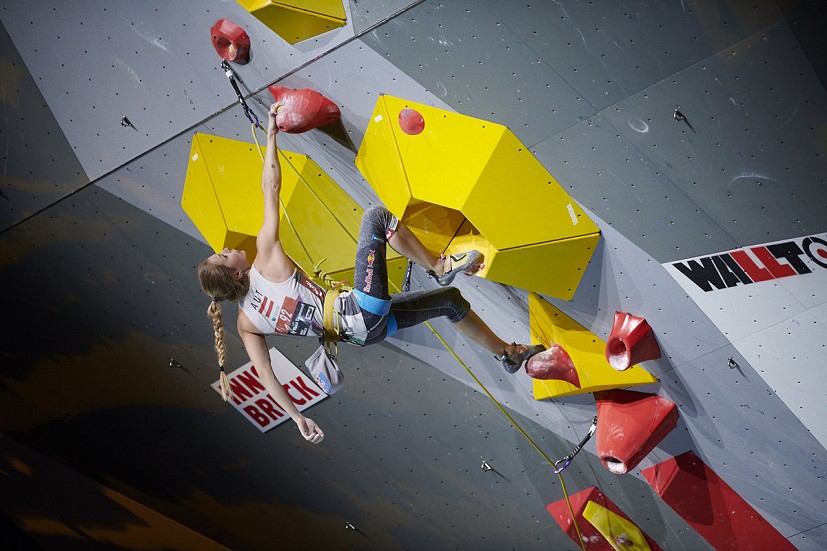
Basically, an NOC might choose not to take a climber to the Olympics because they have limited resources and feel that another athlete in another sport has a better chance of medalling, or they might take the 3rd or 4th highest ranked of their climbers from the Qualification Pathway. If a country has more than 2 climbers who "qualify" for the Olympics via any of the methods listed above, it can choose which 2 it sends to the Olympics. For example, the Slovenian NOC might decide not to take Janja Garnbret to the Olympics and they are not obliged to do so even if she wins the Combined World Championships in Hachioji. Unless they've got some bionic, half-robot track and field athletes hidden away in the Julian Alps I find it hard to believe that they've got any athletes more likely to win a medal than her, but in theory they could choose to not take her. Similarly, Japan might see one of their better known climbers like Akiyo Noguchi beaten in Hachioji by a up-and-comer like Ai Mori, but the Japanese NOC could choose to take Akiyo in place of Ai provided Akiyo finished the Qualification Pathway as a "qualified" athlete from one of the events in the Pathway. Ai's slot would then be passed on to the next highest-ranked climber not yet qualified from a country which hasn't already filled its 2 climbers per gender quota.
I really hope that this doesn't happen to any climber but in theory it could. For a climber to invest so much, meet the qualification criteria and not make it to Tokyo 2020 would be heartbreaking but no country has a bottomless pot of money and some smaller NOCs might choose to only take athletes with realistic medal chances. Hopefully it won't come to that but it will put a small dampener on the culmination of each event in the Qualification Pathway because even the winner in Hachioji is not guaranteed to go to the Olympics, they're only guaranteed to be put forward to their NOC for potential selection.
If an NOC chooses not to take a slot, it's passed on to the next best-ranked climber, not yet qualified, at the respective event where the slot was obtained.
On a personal note and as a broadcaster I can't help but be slightly disappointed that THE moment, when a climber slaps the top of the lead wall in celebration at the end of a successful Combined final, will have an asterisk next to it. "Janja Garnbret WINS in Hachioji and has gained the right to be put forward to the Slovenian National Olympic Committee for potential Olympic selection" is unlikely to go down as one of the great sports calls of all time.
I have no idea how often NOCs choose not to take eligible and qualified athletes and would be interested if anyone has any knowledge about this? Is it likely to be an issue for any climbers or is NOC selection merely a formality and little more than red tape? If anyone does have some expertise on this subject, let me know in the forum.
What we do know is that one year today, 40 climbers will continue the great tradition of our sport by questing into the unknown. As yet, we don't know for sure who any of them will be and it's going to be an interesting ride one way or another over the next year as we figure it out. Climbing is going to the Olympics. Bring it on.

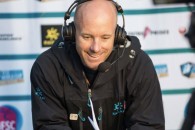

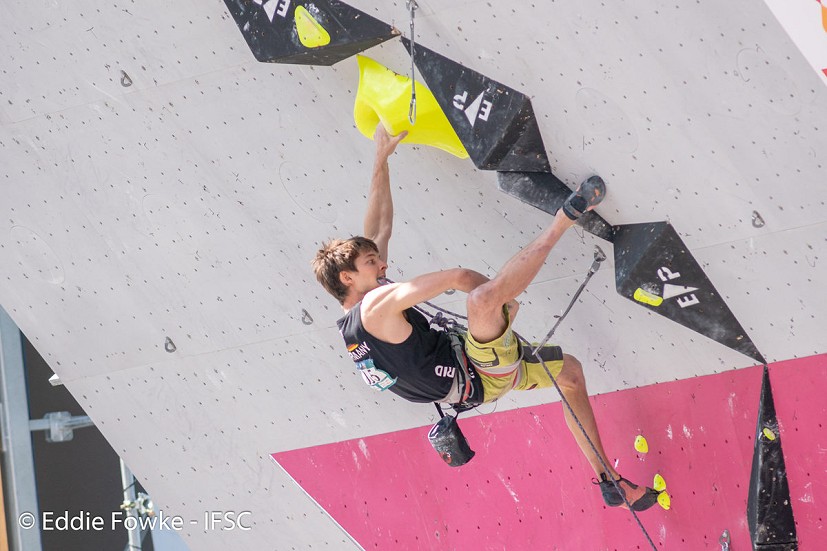
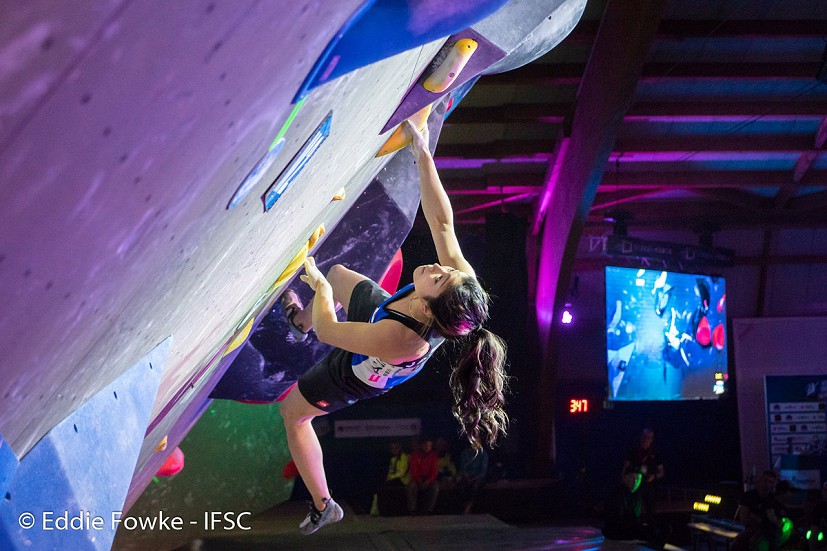
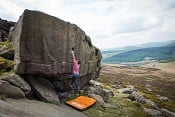
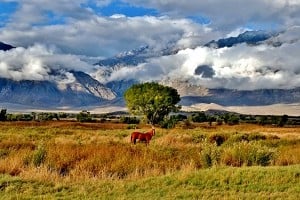
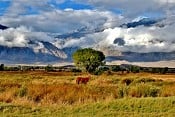
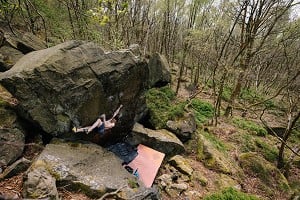
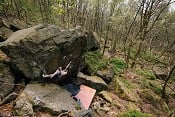






Comments
Do any other Olympic sports have such an insane qualification route or were the planning committee not on speaking terms with each other?
It's not that insane is it? A series of qualifying tournaments and then a bit of autonomy for the individual nations to allow some classic political fudges...
Complex yes, but it hardly seems insane. The Olympics wants climbers from a broad range of countries and from each continent they recognise (and no more than 2 per gender per country) which is understandable, a balance between representing the best and representing the world.
From there you have to be eligible, do very well in a qualifying event, and beat most of your compatriots. I doubt that's much different to any other Olympic sport with a similar number of competitors. The last part is the usual intranational politics of countries favouring certain athletes.
I would have thought from the point of view of an individual athlete trying to qualify it's fairly obvious what they need to do, with a few getting through on the need for diversity in countries/continents rather than direct merit.
Its pretty common for there to be pre-qualifying events for olympic events. Football, volleyball, basketball, ice hockey, equestrianism etc etc The format for the prequalifying varies from sport to sport.
It just seems a bit cobbled together although I assume the home crowd would quite like a "just take the top 20 climbers of each gender irrespective of where they come from based on world cup rankings". Also cutting the field down to 20 and 2 per country seems a bit harsh as you risk some really top climbers from heavily represented countries not making the cut. I guess no one wants to be sat in isolation for 3 hours but opening up the field a bit wouldn't be that hard to arrange.